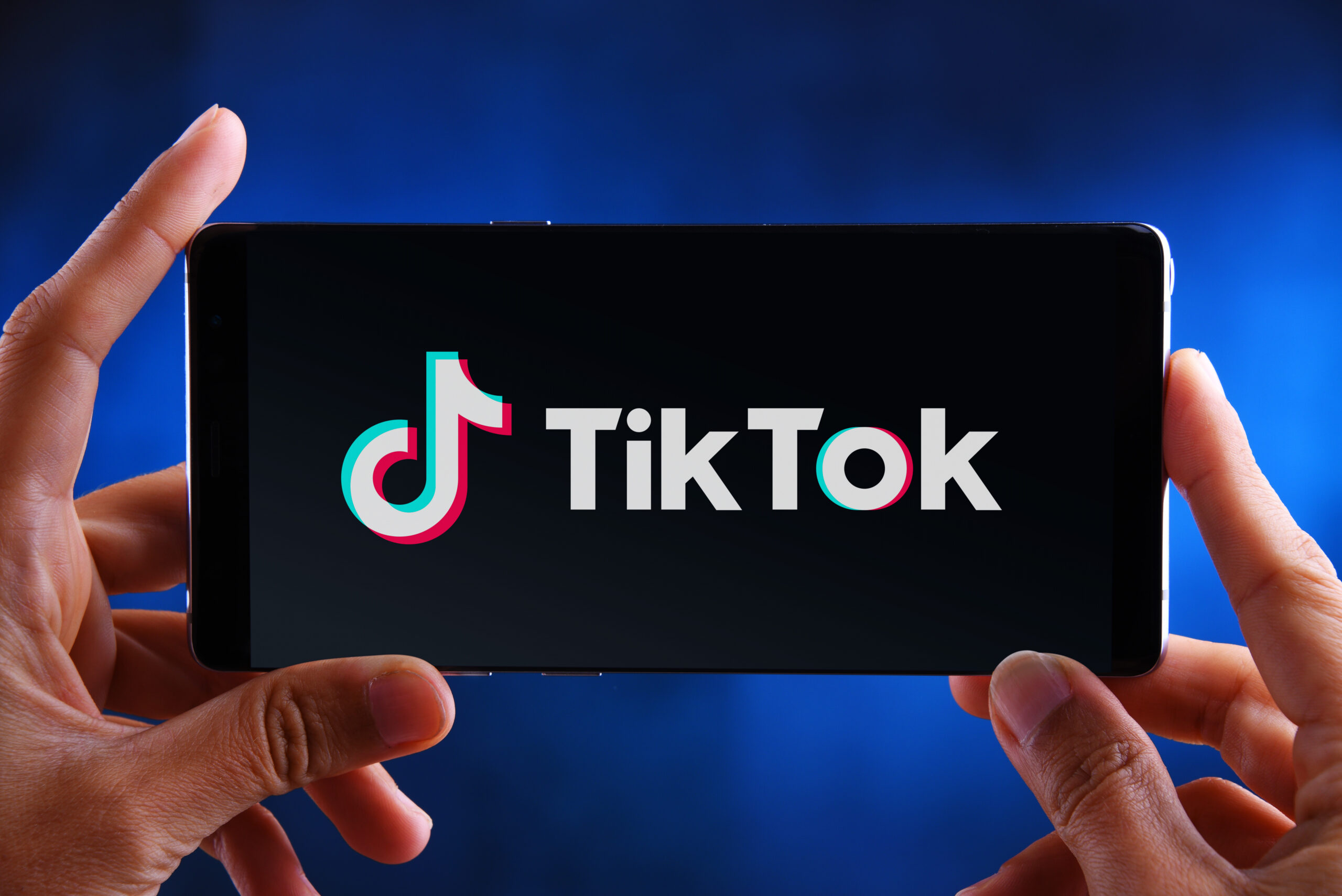The ever-evolving landscape of social media presents new challenges. TikTok, the popular video-sharing app, faces an existential threat in the United States. A federal appeals court has upheld a pending TikTok ban over national security concerns. This decision marks a critical point in the debate over data privacy and international relations. It also raises questions about the future of digital platforms. The outcome could have significant ramifications for millions of users and content creators. It may reshape your online experience and the broader social media ecosystem. Understanding this legal challenge is crucial as you assess its implications for your digital footprint and online engagement.
The Ongoing TikTok Ban Saga: A High-Stakes Battle for Data Security

National Security Concerns vs. User Privacy
The TikTok controversy highlights the delicate balance between national security and individual privacy rights. As the U.S. government cites potential data breaches and content manipulation, TikTok finds itself at the center of a complex geopolitical chess game. The app’s immense popularity among Americans has paradoxically become both its strength and vulnerability, attracting scrutiny from lawmakers concerned about ByteDance’s ties to China.
The Ripple Effect on Digital Landscapes Over TikTok Ban
Should the divestiture or ban proceed, the repercussions would extend far beyond TikTok’s user base. Content creators, advertisers, and the broader social media ecosystem would face significant disruptions. This legal battle serves as a stark reminder of the interconnectedness of global digital platforms and the challenges they pose to traditional notions of sovereignty and security.
Navigating Uncertain Waters
As the January 2025 deadline looms, ByteDance faces mounting pressure to find a resolution. The company’s next moves will be closely watched by tech industry players, policymakers, and users alike. This saga underscores the need for clearer international frameworks governing data privacy and cross-border digital operations in an increasingly interconnected world.
U.S. Court Upholds Pending TikTok Ban: Examining the National Security Concerns
A U.S. federal appeals court recently upheld the pending ban on TikTok. This decision has thrust the app’s national security implications into the spotlight. The ruling highlights concerns about ByteDance, TikTok’s Chinese parent company. It underscores the potential risks to user data and content integrity.
Data Privacy and Chinese Influence Driving TikTok Ban
The core concern is that ByteDance could be compelled by Chinese authorities to share sensitive information about American users. This fear arises from China’s broad national security laws, which could force companies to comply with government data requests. TikTok has repeatedly denied these allegations. However, the court’s decision suggests the hypothetical risk is significant enough to warrant action.
Content Manipulation Concerns
Beyond data privacy, there are worries about ByteDance’s ability to manipulate content on the platform. This could potentially involve promoting or suppressing certain viewpoints, influencing public opinion, or even spreading misinformation. Such concerns are particularly pressing given TikTok’s massive user base of over 170 million Americans and its growing influence on popular culture and public discourse.
Balancing National Security and Free Speech
The court’s ruling has ignited a debate about the delicate balance between national security interests and the right to free speech. TikTok’s planned appeal to the Supreme Court highlights the complex legal and constitutional questions at play. As the January 2025 deadline approaches, the outcome of this high-stakes battle could reshape the digital landscape and impact millions of users nationwide.
ByteDance’s Dilemma: Divest or Cease Operations in the U.S. Market
As ByteDance grapples with the court’s decision, the Chinese tech giant faces a critical crossroads. With the January 19, 2025 deadline looming, the company must choose between two challenging options: divesting TikTok’s U.S. operations or shutting down services in one of its largest markets.
The Divestment Option
Divesting TikTok’s U.S. operations would allow ByteDance to maintain the app’s presence in America while addressing national security concerns. However, this process is complex and time-consuming. It involves:
Finding a suitable buyer capable of managing TikTok’s vast user base and technological infrastructure
Negotiating a fair valuation for the platform’s U.S. assets
Ensuring a smooth transition of user data and algorithms
Ceasing U.S. Operations Amid TikTok Ban Saga
Alternatively, ByteDance could opt to cease TikTok’s operations in the United States. This decision would have far-reaching consequences:
Loss of access for 170 million American users
Significant revenue decline for ByteDance
Potential ripple effects on content creators and businesses reliant on the platform
Navigating Uncertain Waters
As ByteDance weighs these options, it must consider the broader implications for its global strategy and reputation. The company’s decision will not only shape TikTok’s future in the U.S. but also set a precedent for how international tech firms navigate geopolitical tensions and data security concerns in an increasingly interconnected digital landscape.
The Potential Impact of a TikTok Ban on Millions of American Users
Disruption of Digital Entertainment and Creative Expression Coming TikTok Ban
A TikTok ban would significantly alter the social media landscape for over 170 million American users. The platform has become a hub for short-form video content, offering a unique blend of entertainment, education, and creative expression. Many users have built substantial followings, with some even turning their TikTok presence into lucrative careers. The loss of this platform could leave a void in digital entertainment and potentially impact the livelihoods of content creators who rely on TikTok for income and exposure.
Shift in Social Media Dynamics and User Behavior
The absence of TikTok could trigger a mass migration of users to alternative platforms, reshaping the social media ecosystem. Competitors like Instagram Reels, YouTube Shorts, and Triller may see a surge in popularity as users seek similar short-form video experiences. This shift could lead to increased competition among platforms, potentially resulting in innovation and new features as they vie for TikTok’s displaced user base. However, it may also fragment the social media landscape, making it more challenging for users to maintain their online communities and followings.
Economic and Cultural Ripple Effects Over TikTok Ban
A TikTok ban would extend beyond individual users, affecting businesses that have integrated the platform into their marketing strategies. Many companies, especially those targeting younger demographics, have invested heavily in TikTok advertising and influencer partnerships. The loss of this marketing channel could force a rapid pivot in digital advertising strategies, potentially impacting sales and brand awareness for numerous businesses. Additionally, TikTok has become a cultural phenomenon, influencing trends in music, fashion, and pop culture. Its absence could alter the way trends spread and how new artists and creators gain recognition in the digital age.
The Trump Factor: Navigating an Uncertain Legal Landscape for TikTok’s Future
TikTok faces an uphill battle against a potential ban. The impending inauguration of President-elect Donald Trump adds complexity to the legal landscape. Trump’s previous statements about “saving” the app have introduced uncertainty. This could potentially alter the course of TikTok’s future in the United States.
Trump’s Stance and Its Implications
Trump’s expressed desire to preserve TikTok’s presence in the U.S. market stands in stark contrast to the current legal proceedings. This dichotomy raises questions about the potential for executive intervention or policy shifts that could impact the enforcement of the divestiture mandate. However, it’s crucial to note that campaign rhetoric doesn’t always translate directly into policy action, leaving stakeholders in a state of anticipation.
Balancing National Security and Economic Interests
The Trump administration faces the challenge of balancing national security concerns with the economic benefits of TikTok’s massive user base. This may involve exploring alternative solutions. Enhanced data security measures or modified ownership structures could address security requirements. These steps might also allow the app to continue operating in the U.S.
The Road Ahead: Potential Scenarios
As the January 2025 deadline approaches, several scenarios could unfold. These range from a last-minute deal brokered by the incoming administration to a stringent enforcement of the divestiture order. The outcome will likely depend on a complex interplay of legal, political, and economic factors, with far-reaching implications for digital platforms, user privacy, and international business relations.
Summary of Findings
As you navigate this evolving situation, it’s crucial to stay informed about the potential implications of TikTok’s legal battle. The outcome could significantly reshape the social media landscape and impact your digital experiences. While the app’s future in the U.S. remains uncertain, it’s advisable to consider alternative platforms and back up your content. Keep abreast of developments, as the Supreme Court’s decision and the incoming administration’s stance may yet alter the course of events. Ultimately, this case highlights the complex interplay between national security concerns and digital freedoms in our increasingly interconnected world. Your awareness and adaptability will be key as this situation unfolds in the coming months.
More Stories
QpiAI-Indus: India’s Quantum Leap with a 25-Qubit Superconducting Computer
QpiAI, a Bengaluru-based startup, has unveiled the QpiAI-Indus, India’s first full-stack superconducting quantum computer. This 25-qubit system represents a quantum leap for the nation’s scientific capabilities, integrating cutting-edge hardware with sophisticated software solutions.
Opera Mini Empowers 100M Users with Free AI Assistant, Bridging the Digital Divide
Notably, the company integrated the AI assistant Aria into Opera Mini. Now, users gain advanced artificial intelligence access—no matter their location or internet quality. This strategic move empowers more than 100 million users globally. Particularly, it helps people in areas where high data costs previously limited online participation.
Fujitsu, Supermicro, and Nidec Unite to Revolutionize Data Center Cooling Efficiency
In the ever-evolving landscape of liquid cooling data centers, a groundbreaking collaboration has emerged to address one of the industry's...
Alibaba’s Taobao Surges in Popularity in US as Trump Tariffs Boost Chinese Shopping Apps
As you navigate the ever-changing landscape of global commerce, a surprising trend has emerged in the wake of recent U.S. tariff increases on Chinese goods. Contrary to expectations, these measures have not deterred American consumers from purchasing Chinese products.
Alibaba Cloud Unveils Advanced AI Models and Tools to Empower Global Developers
At the 2025 Spring Launch, the tech giant unveiled a suite of advanced AI models and tools designed to empower global developers like you. From the large-scale Qwen-Max to the reasoning-focused QwQ-Plus, these cutting-edge models are now at your fingertips through Alibaba Cloud’s Model Studio.
J.P. Morgan’s AI Leap: Transforming Invoice Reconciliation in the Philippines
As you navigate the ever-evolving landscape of financial technology, J.P. Morgan's latest initiative in the Philippines demands your attention. This...


